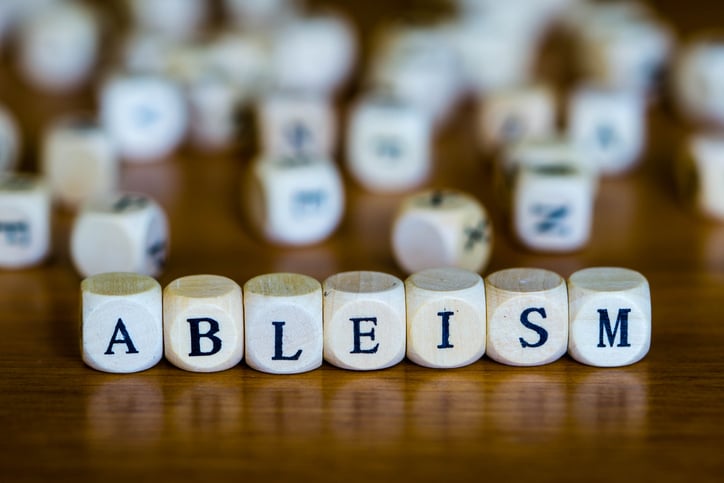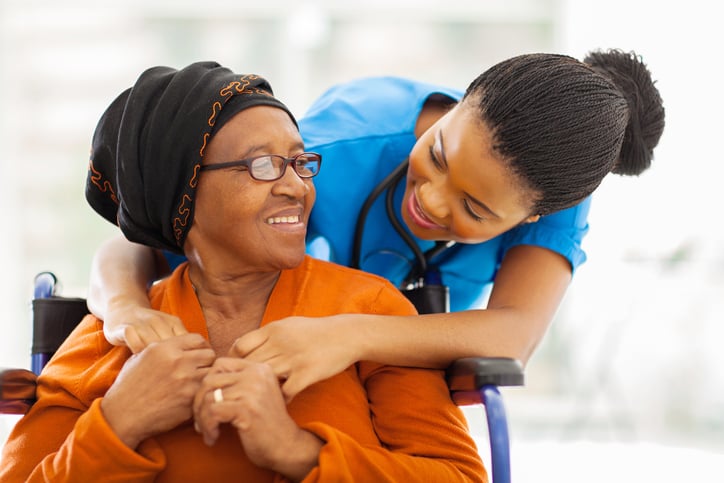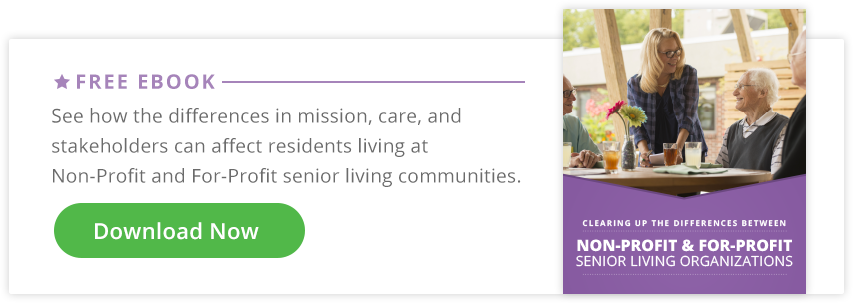
Diversity, Equity, Inclusion and the Importance of Belonging: Let's Talk About Ableism
Have you ever made the statement "the blind leading the blind" when referring to a group of people you don't think have enough skills or commented that your words "fell on deaf ears" when you thought someone did not listen to you close enough? These phrases are ground into our vernacular so thoroughly that we don't even give them a second thought before saying them. We usually mean no harm when we say things like that, but they are ableist statements that are harmful to disabled people.
So – What is Ableism?
Ableism is discrimination against people with disabilities. The discrimination can be intentional or unintentional and is based on the belief that there is a correct way for bodies and minds to function and that anyone who deviates from that is inferior.
Ableism centers on the notion that people with disabilities are imperfect and need fixing. It can show up in ways ranging from personal to institutional, and it includes the many ways in which people with disabilities are considered "less than" non-disabled people.
Did you know that people with disabilities make up 15 percent of the population, making this group the world's largest minority?
What is an example of ableism?
There are infinite examples of ableism, and there are many types, including "bigger" or more overt displays of ableism—i.e., business's lack of wheelchair-accessible ramps or bathrooms, a lack of brail options, a lack of overall accessibility options, as published by Parade.
According to Forbes, personal ableism describes, "Feeling instinctively uncomfortable around disabled people, or anyone who seems 'strange' in ways that might be connected to a disability of some kind. This manifests in hundreds of ways and can include: Being nervous, clumsy, and awkward around people in wheelchairs, being viscerally disgusted by people whose bodies appear to be very different or 'deformed,' and avoiding talking to disabled people in order to avoid some kind of feared embarrassment." Personal ableism may also include perpetuating or believing stereotypical views about disabled people or even resenting the "privileges" disabled people may have as a group—for example, "better" parking spaces, bigger bathrooms, etc.
Two Main Types of Ableism
Ableism is generally broken down into two types: physical and mental. Though a person could behave in an ableist way about a different area of identity, these are the two most common, according to an article published by verywellmind, a mental health publication.
Physical Ableism
This form of ableism is centered on the intentional or unintentional discrimination of people with physical disabilities. However, for people who are not disabled, these forms of discrimination may not be noticeable. That's because when you don't have to think about how others are functioning, there's a greater chance you won't realize how infrequently disabled people are considered in the set-up of public spaces.
Here are some examples of how physical ableism presents itself:
- Buildings and signs that aren't accessible, such as ones that are not able to be traversed by people with mobility issues
- Signs that aren't available in braille
- The assumption that someone who appears to have a disability is less intelligent than others
Mental Ableism
Just like how physical ableism is discrimination against people with physical disabilities, mental ableism is discrimination, whether intentional or not, against people who are mentally ill, neurodivergent (when someone's brain processes, learns and/or behaves differently for what is considered "typical"), and labeled as having developmental disabilities. These are some ways that people experience mental ableism.
- Segregating students who are neurodivergent into separate classes and schools
- Non-disabled people using words like "dumb," "crazy," "moron," "retarded," and "lame" in conversation
- The legality of paying mentally disabled people below minimum wage
There are also subtle forms of discrimination, such as assuming incapability and helplessness, minimizing someone's condition by assuming a disabled person is lying about their limits, thinking that having a disability means a person is child-like and incompetent and seeing disabled people as abnormal. These subtle forms of discrimination may manifest into actions that specifically exclude disabled people.
The Impact of Ableism
It should come as no surprise that ableism harms disabled people. It may harm them emotionally, such as when a blind person hears someone say that a situation is "like the blind leading the blind." It can harm them physically, like when a disabled person has to go somewhere that hasn't been made accessible to them. It hurts them in educational institutions when disabled people may not be included with non-disabled classmates. And it can harm them in their livelihoods, as disabled people are presented with fewer job opportunities and lower wages, earning an average of 37 percent less annually.
How to be More Inclusive

Now that you understand ableism, below are a few ideas that you can do to avoid ableist behaviors and support someone in your family or your community.
- Stop using ableist language in your conversations. Check out this helpful PDF that outlines common ableist terms and provides alternative language.
- Don't assume that disabled people are less valuable than others, and speak to them just like you would anyone else.
- If you go to a place that isn't accessible to disabled people, talk to the managerial staff to bring the deficiency to their attention.
- Don't use accessible bathrooms or park in accessible parking spaces.
- Take stairs instead of elevators when feasible, so more space is available for people in wheelchairs.
- Remember that disabled people aren't here to inspire others – Don't view a person with a disability as inspirational for doing ordinary things, such as having a career.
- Directly learn from disabled writers, creators, and activists by following them on social media, listening to their podcasts, reading their articles, etc.
- Don't ask someone what is "wrong" with them.
- Don't say, "You do not look disabled," as though this is a compliment.
- Don't assume a physical disability is a product of laziness or lack of exercise.
- Don't question whether a person's disability is real.
As we think about ableism through the lens of diversity, equity and inclusion, let us reflect on how our communication and behaviors can support everyone. We all need to feel that we belong - no matter our physical or mental abilities. 
About Presbyterian Senior Living
As the trusted leader in aging services, Presbyterian Senior Living combines over 97 years of experience with innovative approaches to senior communities and services. Across our 27 communities in PA, MD, OH, and DE, we serve over 6,000 seniors. We are committed to: FOSTERING teamwork and responsibility. UPHOLDING integrity in every action. EMBRACING innovation to create opportunities for everyone’s success. LEADING with compassion and respect.

